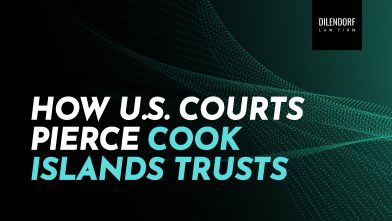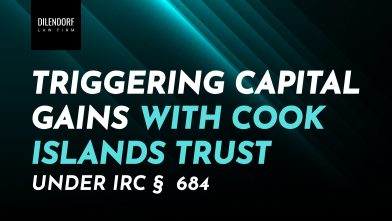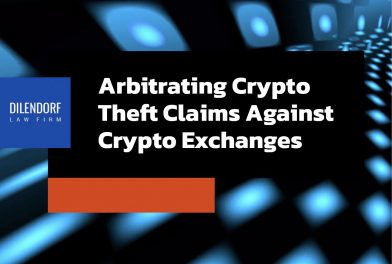DAO Lawyers: Forming and operating a Wyoming DAO LLC
You can also download this article in PDF format here.
On March 17, 2021, Wyoming’s state senate passed the Decentralized Autonomous Organizations Supplement (DAO Supplement), a bill aimed at clarifying the legal status of the decentralized autonomous organization (DAO). Wyoming’s DAO Supplement is designed to provide a legal framework for an entity that has not yet been contemplated by federal or state legislatures.
The bill applies the Wyoming LLC Act to DAOs, giving them legal status as limited liability companies (LLCs). Supporters of the DAO Supplement believe it will not only protect DAOs from being sued as general partnerships but also solidify the rights of DAOs as legal persons and provide clarity and structure to many DAO projects.
While this new legal framework does not address all DAO-related issues, it does clear up the potential liability faced by members of a DAO and mark a significant step forward for the recognition of DAOs as legal entities.
What is a DAO?
At its core, a DAO is an organization governed by a series of smart contracts which enable the organization to function autonomously, without the need for a central intermediary or authority. A smart contract is simply a set of computer code running on top of a blockchain that self-executes pre-determined transactions when particular conditions are met.
The code and the agreements contained within it allow for trustless transactions and agreements to be carried out by anonymous, independent parties around the globe. Moreover, the code is immutable, meaning it cannot be modified once deployed on the network.
Smart contracts can execute a myriad of tasks ranging from decision making to voting to automatic profit distributions, thereby facilitating the operation of a fully decentralized organization. Through smart contracts, a DAO can work with external information and carry out tasks and commands based on that information.
The DAOs smart contracts generally must include the creation and distribution of some form of native token. The native token can then be spent by the DAO, used to incentivize certain activities, or utilized through voting mechanisms.
The tokens are typically accompanied by voting rights, and decisions regarding the DAO are typically made through proposals that are voted on by the members of the DAO. What results is a fully operational autonomous organization independent from any central authority.
DAOs are particularly exciting because they enable like-minded people around the world–who neither know nor trust each other–to work together towards a common goal.
There is no need for trust because the rules and governance of the organization are embedded in the DAOs code, which is transparent, immutable, and verifiable by anyone. Accordingly, DAOs open a door to many new opportunities for collaboration on a global scale, all without a central intermediary. If you have a vision or idea but lack the funding or network, setting up a DAO could very well be a viable option.
What is an LLC/DAO LLC?
- A traditional limited liability company (LLC) is a legal entity distinct from its individual members or owners. It is a creature of state law, meaning when you form an LLC, you form it under the laws of a particular state–in this case, the state of Wyoming. As such, Wyoming law governs both the internal affairs of an LLC and the liability of a member as a member and manager as a manager for the debts, obligations, or other liabilities of an LLC.
- The Wyoming LLC Chapter applies to DAOs to the extent not inconsistent with the provisions of the DAO Supplement and the powers provided to the secretary of state. In essence, the DAO supplement supersedes the Wyoming LLC Act where there are inconsistencies between the two chapters, while the Wyoming LLC chapter applies to all matters not addressed in the DAO supplement.
- Under the Wyoming DAO Supplement to its LLC Chapter, a DAO LLC is an LLC whose articles of organization contain a statement that the company is a DAO.
- Becoming a member:
- After the formation of a limited liability company, a person becomes a member: (1) as provided in the operating agreement; (2) as the result of a transaction effective under article 10 of the Wyoming LLC chapter; (3) with the consent of all the members; or (4) if, within ninety consecutive days after the company ceases to have any members: (a) the last person to have been a member, or the legal representative of that person, designates a person to become a member; and (b) the designated person consents to become a member.
- A person may become a member without acquiring a transferable interest and without making or being obligated to make a contribution to the LLC.
What are the Advantages of Forming an LLC?
- There are many advantages to structuring a company as an LLC:
- Limit Personal Liability: Much like shareholders of a corporation, LLC members/owners are not personally liable for the LLC’s debts or legal liabilities.
- Avoid Double Taxation and Pass-Through Deduction: Standard corporations are generally burdened with double income taxation. The corporation’s profits are first taxed as income and shareholders must then pay income taxes on any dividends. LLCs, on the other hand, receive “pass-through” treatment allowing allocated profits to be taxed only once on each member’s individual income tax return. Additionally, LLC owners may be able to deduct 20% of their business income with the 20% pass-through deduction established under the Tax Cuts and Jobs Act
- Less administrative hassles and paperwork: Establishing and maintaining an LLC is less complex and burdensome than other corporate entities. An LLC is established by filing articles of organization with and paying a fee to the secretary of state. The filing typically includes the LLC’s name, the location of its principal offices, the identity of its members, the planned duration of the business, and any other statutorily mandated information.
How Do I Form A Wyoming DAO LLC?
- Any person may form a DAO LLC by signing and delivering one original and one exact or conformed copy of the articles of organization (“Articles”) to the secretary of state for filing. The person forming the DAO does not have to be a member of the organization.
- Every DAO must have and continuously maintain a registered agent in the state of Wyoming.
- A DAO, like any other LLC, may form and operate for any lawful purpose, regardless of whether for profit.
Articles of Organization:
- The Articles must include:
- A statement that the organization is a DAO.
- The registered name of the DAO LLC. The registered name for a DAO must include wording or abbreviation to denote its status as a decentralized autonomous organization; specifically, “DAO,” “LAO,” or “DAO LLC.”
- The street address of the LLC’s initial registered office and the name of its initial registered agent at that office. The articles must be accompanied by a written consent to appointment signed by the registered agent.
- A “Notice of Restrictions on Duties and Transfers,” stating that the DAO Supplement, underlying smart contracts, articles, and operating agreement, if applicable, of a DAO may define, reduce, or eliminate fiduciary duties and may restrict the transfer of ownership interests, withdrawal or resignation from the DAO, return of capital contributions, and dissolution of the DAO.
- A publicly available identifier of any smart contract directly used to manage, facilitate, or operate the DAO.
- The Articles may define the DAO as either member-managed or algorithmically managed. If the type of DAO is not specified, the LLC is presumed to be member-managed. An algorithmically managed DAO may only form if the underlying smart contracts can be updated, modified, or otherwise upgraded.
- The Articles and smart contracts for every DAO govern all of the following: (1) relations among the members and between the members and the DAO; (2) rights and duties of a person in their capacity as a member; (3) activities of the DAO and the conduct of those activities; (4) means and conditions for amending the operating agreement; (5) rights and voting rights of members; (6) transferability of membership interests; (7) withdrawal of membership; (8) distributions to members prior to dissolution; (9) amendment of the articles of organization; procedures for amending, updating, editing, or changing applicable smart contracts; and (10) all other aspects of the DAO. Note: The Articles and smart contracts essentially take the role of the operating agreement in a traditional LLC in terms of what they govern.
- The Articles must be amended when: (1) there is a change in the name of the DAO; (2) there is a false or erroneous statement in the articles of organization; or (3) the DAO’s smart contracts have been updated or changed.
Operating agreement: An operating agreement may supplement the Articles or smart contracts if they do not otherwise provide for a matter.
Management and Membership of LLC:
Management of DAO LLC: Management of a DAO must be vested in its members, if member-managed, or the smart contract, if algorithmically managed unless otherwise provided in the Articles or the operating agreement. If no specification is made, the presumption is that the DAO is member-managed.
Standards of conduct for members: Unless otherwise stated in the Articles or operating agreement, no member shall have any fiduciary duty to the organization or any member except for the implied contractual covenant of good faith and fair dealing. Conversely, a traditional LLC imposes duties of loyalty and care on its members in addition to the implied covenant of good faith and fair dealing.
Membership interests in member-managed DAO:
- A membership interest is calculated by dividing a particular member’s contribution of digital assets to the organization by the total amount of digital assets contributed to the organization at the time of the particular vote.
- If members do not contribute digital assets as a prerequisite to becoming a member, each member will possess one membership interest and is entitled to one vote.
- A quorum (minimum votes required for a valid vote to take place) requires at least a majority of membership interests entitled to vote.
- Note: Membership in DAOs is often limited in terms of the number of investors and type of investors. The Flamingo DAO project, for example, imposed limits of 100 accredited investors. According to Flamingo, these limitations were put in place to comply with US securities laws; prevent any one party from controlling a disproportionate amount of the organization, and limit the risk of look through issues for members that are organized as funds or other legal entities.
Right of members, managers, dissociated members to information: members do not have a right to separately inspect or copy the records of a DAO, and the DAO is under no obligation to furnish any information concerning the organization’s activities, financial condition, or other circumstances to the extent that information is available on the open blockchain.
Liability of Members and Managers:
- The debts, obligations, or other liabilities of an LLC: (1) are solely the debts, obligations, or other liabilities of the company; and (2) do not become the debts, obligations, or other liabilities of a member or manager solely because the member is acting as a member or manager acting as a manager.
- The failure of an LLC to observe any particular formalities relating to the exercise of its powers or management of its activities is not a ground for imposing liability on the members or managers for the debts, obligations, or other liabilities of the company.
Withdrawal of members:
- A member may only withdraw from a DAO LLC under the terms outlined in the Articles, the smart contracts or, if applicable, the operating agreement. If no terms and conditions for withdrawal of a member are set forth for a member-managed DAO, a member may withdraw only via a vote by a majority of the members.
- A member cannot have the organization dissolved for failure to return the member’s contribution of capital.
- Unless otherwise provided for in the articles, smart contracts, or operating agreement, a withdrawn member forfeits all membership interests in the DAO, including any governance or economic rights.
Controlling authority: The articles of organization and the operating agreement of a DAO are effective as statements of authority. Where the underlying articles of organization and operating agreement are in conflict, the articles of organization control. Where the underlying articles of organization and smart contract conflict, the smart contract controls.
Federal Withholding Tax: Taxes are not addressed in the DAO Supplement. Nevertheless, a presumption can be made that DAO LLCs will be treated just like any other LLC for tax purposes. DAOs that involve foreign members should therefore always be cognizant of the Federal Withholding Tax, which subjects foreign nationals to a 30% standard flat-rate tax on US source income. The tax is typically withheld from payments made to foreign nationals.
RESOURCES:
- SEC Issues Investigative Report Concluding DAO Tokens, a Digital Asset, Were Securities
- Report of Investigation Pursuant to Section 21(a) of the Securities Exchange Act of 1934: The DAO
- Blockchain, Smart Contracts & DAO
- Law and the Blockchain
- The Data Briefing: I, For One, Welcome Our New Chatbot Blockchain Digital Autonomous Organizations
- Decentralization, DeFi and MarketDAO
- Cryptocurrency Enforcement Framework










